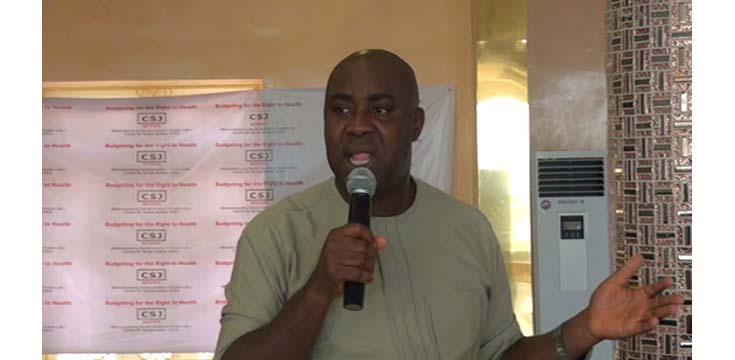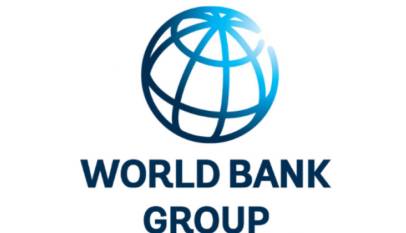INTERVIEW: “Why violators of budget laws should be prosecuted”
Dr Uzochukwu Amakom is a Senior Research Fellow at the Institute of Development Studies, University of Nigeria, Nsukka and budget consultant for the UK-DFID Partnernership to Engage, Reform and Learn (PERL) programme. He speaks about factors hindering budget preparation and implementation in Nigeria including lack of punishment against violators of budget laws

The budget document is said to be the second most important document after the constitution of all nations. What is your assessment of budget processes in Nigeria?
The budget process in Nigeria is improving because we are not where we were when Nigeria returned to democracy in 1999, but I think we need to move on in a faster pace. People will say it took America 200 years to get to where they are today but I keep telling them that their argument doesn’t hold water because what is available to us now was not available to them 200 years ago.
We are now in the internet age and the world is now a global village so why not take that opportunity and improve our pace of development. I will say our budget has not really improved as much as I feel it should, even though we can say there is now an opportunity for people to participate actively in the preparation stages but the space is still not very wide.
This is because it is still only in some sectors that citizens participate, there are sectors where citizens don’t have a say at all. Of course there may be items of the budget that concern national security that are no-go areas, however citizens should still have a say to some extent so as to bring about transparency in the process.
Moreover, we need the budget process to start on time, you can see that the 2018 budget was only signed in June 2018; it took 7 months for it to be signed, I don’t think it is a good development. And the fact that the budget lasted for 7 months in the National Assembly was because the preparation stage was not well handled.
If the National Assembly was consulted during the preparation they wouldn’t have later added the items they added to the budget which brought about the hitches. I therefore think there is need for openness at the preparation stage so that all stakeholders will know their role and when to engage the process.
Although we have a budget calendar unfortunately we don’t adhere to it; if we can’t adhere to it we should cancel it and prepare one we can adhere to. Once you have a problem with preparation it will affect implementation, it will also affect evaluation and even monitoring. As a consequence of this, Ministries, Departments and Agencies (MDAs) are returning unspent money back to the treasury because the fiscal year has ended.
One of the factors affecting budget preparation and implementation is lack of synergy between the executive and legislative arms of government. How do you think achieving improved interactions between the 2 arms of government during budget preparation stages will help improve the process?
I think legislators shouldn’t wait until the executive brought the budget document to them before they will make contributions in terms of what needs of the people they are representing should be included in the budget. If those needs are included at the preparation stage there won’t be issues and it won’t take long for the budget to be passed into law.
Budget enactment is a problem even in the US; you can see how President Trump and the Democrats are fighting over budget passage because of the proposed wall on the Mexican border. However, if you have a clear-cut policy and every stakeholder understand and adhere to this policy ab initio it shortens the time for the passage and improves the relationship between the legislative and executive arms of government.
At the expiration of the 2017 budget year billions of naira were returned to the treasury by various MDAs. What must we do to address this challenge?
Budget implementation can only be smooth if MDAs know their roles; I believe MDAs should have their procurement plans ready early, since they are the ones that prepare the budget. If they prepare and submit the procurement plans on time they will know the particular projects they need to execute in say January, February, or March etc.
Thus, they need to determine which projects they will handle themselves and which projects must go through the Bureau of Public Procurement (BPP) – since now all projects worth NGN100 million and above must be managed by the BPP – so that they pass through the laid down processes on time and implementation will also begin on time. It is because these processes are not done on time that budget years do not start on time which leads to return of funds to the treasury at the end of the fiscal year.
What are the strategies we must adopt if we have to achieve a transparent and efficient budget process in Nigeria?
We must understand that the budget document is a law as such anybody who violates the law should face some consequences. Unfortunately, unlike other laws which if people violate them they face consequences, people keep violating budget laws without any consequences. For example, the auditor general of the federation will highlight fault-lines he has discovered in the budget but the National Assembly hardly acts on them.
It is unfortunate that we are still using an outdated law, which I think is less that analogue. Is it not shameful that Nigeria is now using Rwanda as a case study, whereas we were condemning what was happening in Rwanda and wondering why what happened in the country was happening in Africa? I think we need to sit up, your democracy doesn’t have to last for 1 million years before you will be able do things right.












